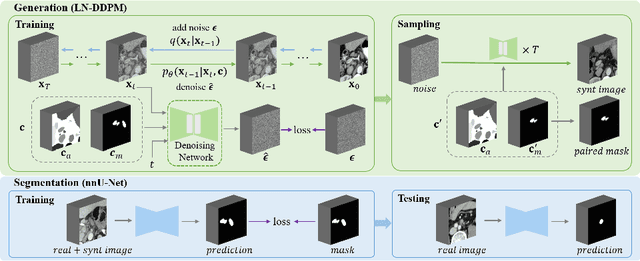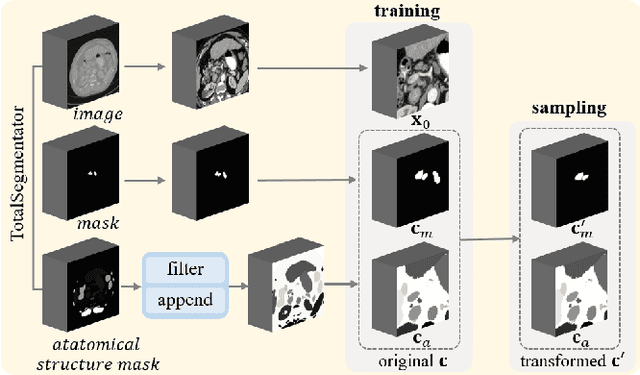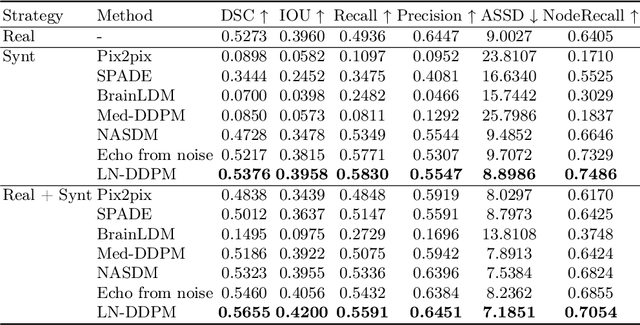Yongrui Yu
MedDiff-FM: A Diffusion-based Foundation Model for Versatile Medical Image Applications
Oct 20, 2024



Abstract:Diffusion models have achieved significant success in both the natural image and medical image domains, encompassing a wide range of applications. Previous investigations in medical images have often been constrained to specific anatomical regions, particular applications, and limited datasets, resulting in isolated diffusion models. This paper introduces a diffusion-based foundation model to address a diverse range of medical image tasks, namely MedDiff-FM. MedDiff-FM leverages 3D CT images from multiple publicly available datasets, covering anatomical regions from head to abdomen, to pre-train a diffusion foundation model, and explores the capabilities of the diffusion foundation model across a variety of application scenarios. The diffusion foundation model handles multi-level image processing both at the image-level and patch-level, and utilizes position embedding to establish multi-level spatial relationships as well as anatomical structures and region classes to control certain anatomical regions. MedDiff-FM manages several downstream tasks seamlessly, including image denoising, anomaly detection, and image synthesis. MedDiff-FM is also capable of performing lesion generation and lesion inpainting by rapidly fine-tuning the diffusion foundation model using ControlNet with task-specific conditions. Experimental results demonstrate the effectiveness of MedDiff-FM in addressing diverse downstream medical image tasks.
CT Synthesis with Conditional Diffusion Models for Abdominal Lymph Node Segmentation
Mar 26, 2024



Abstract:Despite the significant success achieved by deep learning methods in medical image segmentation, researchers still struggle in the computer-aided diagnosis of abdominal lymph nodes due to the complex abdominal environment, small and indistinguishable lesions, and limited annotated data. To address these problems, we present a pipeline that integrates the conditional diffusion model for lymph node generation and the nnU-Net model for lymph node segmentation to improve the segmentation performance of abdominal lymph nodes through synthesizing a diversity of realistic abdominal lymph node data. We propose LN-DDPM, a conditional denoising diffusion probabilistic model (DDPM) for lymph node (LN) generation. LN-DDPM utilizes lymph node masks and anatomical structure masks as model conditions. These conditions work in two conditioning mechanisms: global structure conditioning and local detail conditioning, to distinguish between lymph nodes and their surroundings and better capture lymph node characteristics. The obtained paired abdominal lymph node images and masks are used for the downstream segmentation task. Experimental results on the abdominal lymph node datasets demonstrate that LN-DDPM outperforms other generative methods in the abdominal lymph node image synthesis and better assists the downstream abdominal lymph node segmentation task.
 Add to Chrome
Add to Chrome Add to Firefox
Add to Firefox Add to Edge
Add to Edge